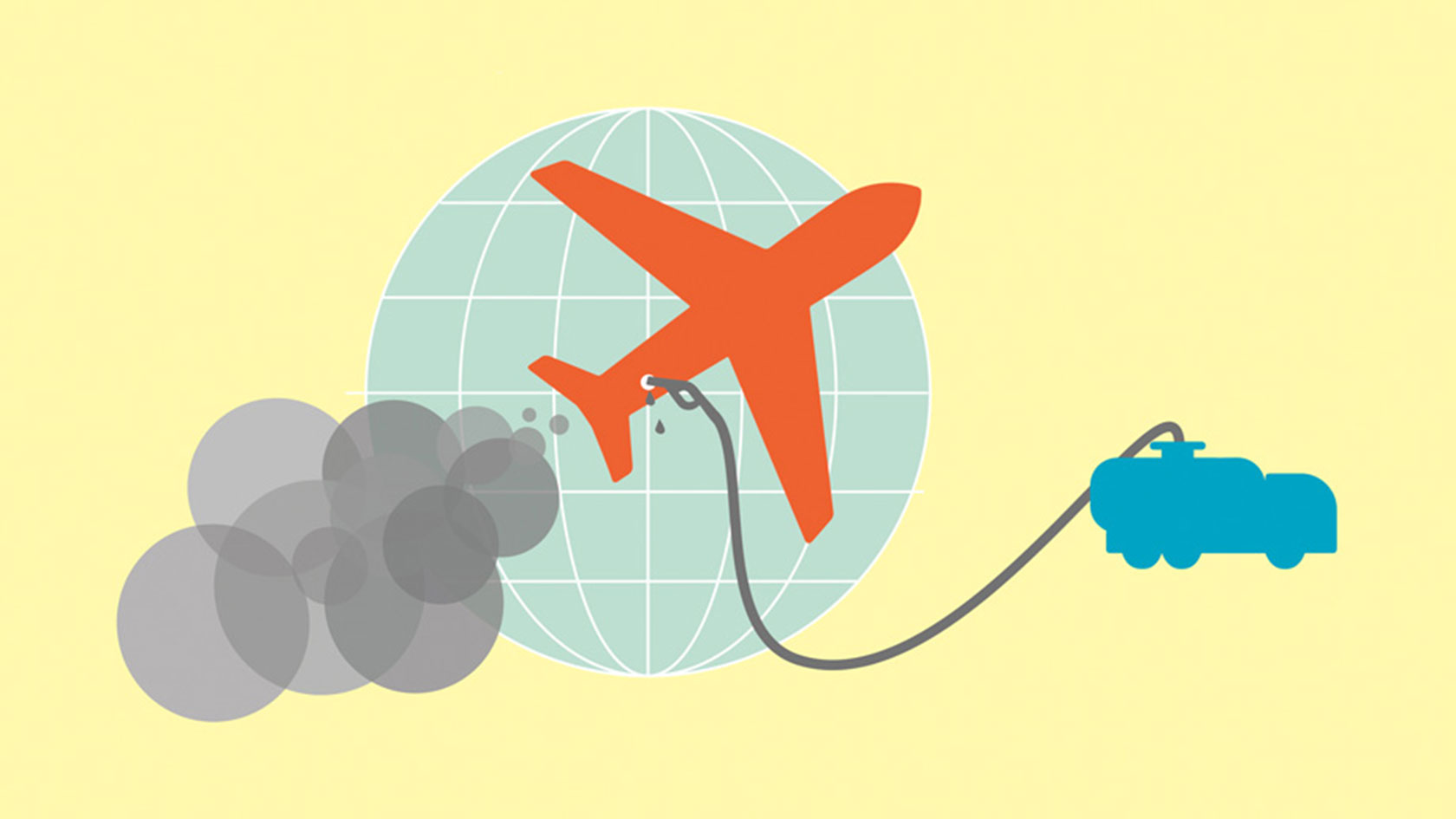Infrequent Flyers

Up until the pandemic, air travel was the most significant source of emissions at UZH. Curbing air travel is therefore a key part of reducing greenhouse gas emissions and taking a significant step toward climate neutrality, which UZH aims to achieve by 2030. This ambitious goal can only be reached if everyone at UZH shares this vision and acts in concert.
The Executive Board of the University asked the faculties to develop measures to reduce emissions from air travel. This involved determining a joint reduction target and pathway for all faculties. Led by the deans, working groups in the faculties then discussed how this target could be achieved. “Providing the faculties with enough scope for finding solutions that align with the various cultures and tasks in the relevant disciplines was key,” says sustainability expert Leonard Creutzburg, who advised the the groups tasked with drawing up the measures.
Seven faculties, seven action plans
The action plans containing these measures have now been finalized. “The measures are as diverse as the faculties, which differ greatly in staff and student numbers, financial resources, organizational structure and scientific culture,” says Creutzburg. Some faculties have focused on introducing incentives – for example, through a tax on air travel. This involves imposing a levy per tonne of CO2 equivalents (CO2e) emitted, which makes flying more expensive than other options. The specifics, i.e. whether it applies to long-haul or short-haul flights, how high the levy is, and how it will be used, vary greatly.
Double the effect
The Faculty of Arts and Social Sciences introduced such a levy back in the fall of 2022. They now charge CHF 130 per tonne of CO2 emitted and a minimum of CHF 130 per flight. For every CHF 130 raised, CHF 100 is paid into a fund that the faculty can use to finance travel by train and bus, doubling the incentive effect.
All air travel paid for with funds from the Faculty of Arts and Social Sciences’ organizational units and central administration have to be recorded in the ClimateSmart.Travel tool. These data are used to charge the incentive tax to the cost center that paid for the flights.
“Our working group was made up of people from across the faculty and dean’s office, and we worked hard to develop the measures,” says Katharina Michaelowa, dean of the Faculty of Arts and Social Sciences. “The faculty’s response to the measures was very positive, which isn’t something that should be taken for granted.” According to Michaelowa, some disciplines in the Faculty of Arts and Social Sciences rely heavily on travel, for example social and cultural anthropology or the various subjects covered by the Institute of Asian and Oriental Studies.
Short-haul flights not covered
The Faculty of Theology has also developed comprehensive measures to reduce air travel. As a matter of principle, the faculty only covers flights in economy class and does not reimburse air travel costs if the destination can be reached by train in fewer than 10 hours (14 hours by night train). Moreover, no short stays are covered by the faculty, and scholars are advised to take part in conferences online whenever possible.
From 2023, it will divide its emissions allowance into three categories: air travel by non-professorial academic staff and senior researchers and teaching staff, air travel by professors, and air travel by external guests. In addition, staff at the Faculty of Theology have to report their air travel plans for the following semester by a specific due date. If one of the groups causes more CO2 emissions than allowed, lots will be drawn to determine which of the flights in the relevant group will be reimbursed.
Discussed at great length
“We invested a lot of time and discussed the measures at great length,” says Michael Coors, head of the Faculty of Theology working group. “In the end, the Faculty Assembly’s decision was very clear, although we all realize that this will limit our opportunities for international networking. But we came to the conclusion that reducing CO2 emissions was more important. We also didn’t want to rely on trading emissions certificates and allocate CO2 emissions based on the financial resources of the professorial chairs and departments.”
Changes still possible
Overall, the various measures adopted by the faculties will help UZH members think more closely about which flights they consider to be important. Since many of the measures have only recently been introduced, it is still too early to assess how effective they are. “We will evaluate which measures are working well and which could be improved. If we notice that a faculty is not on track to achieve its targets, the measures will have to be adapted,” says Creutzburg.
Leading by example
Some organizational units at UZH have taken action at their own initiative and set their own reduction targets regardless of the faculty measures. The GIUZ Sustainability Task Force, a flagship project within the Department of Geography, for example, organizes events on the topic of flight-related emissions. The task force is also working with Master’s students to come up with solutions for automatically collecting flight data, which will make it easier to analyze the air travel habits of employees.
Many research leaders from the Department of Systematic and Evolutionary Botany are supporting the university-wide Make Science, Not Miles project. Along with their research groups, they have committed to making sure they fly less or not at all when planning their funding applications, field work, conferences and research activities. Some researchers have even committed to not take any flights over the next two years.